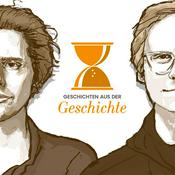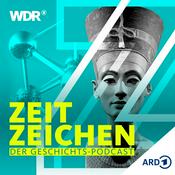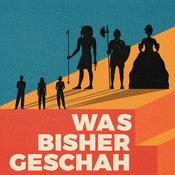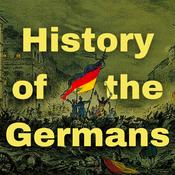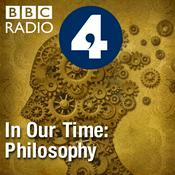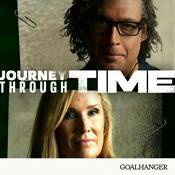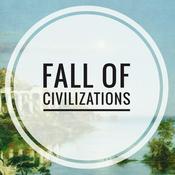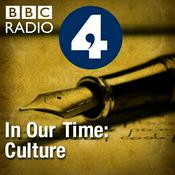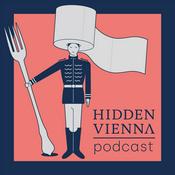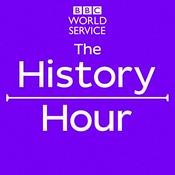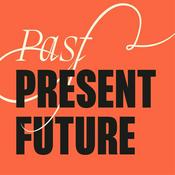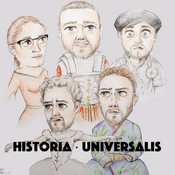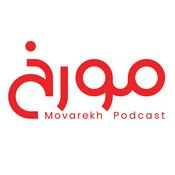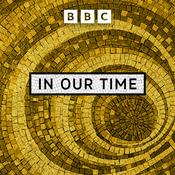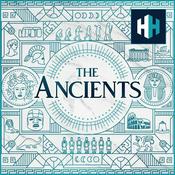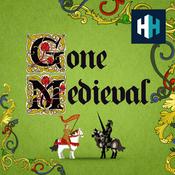8 Episoden
- The Ottoman Empire began as a small frontier principality in northwestern Anatolia - one of many Turkish beyliks born from the collapse of the Seljuks and the Mongol invasions. Within centuries, it transformed into a vast empire spanning three continents, uniting diverse peoples under one of history’s longest-lasting dynasties. How did it rise, expand, and sustain its rule for over 600 years?
In this episode, Professor Charles Wilkins joins us to discuss:
🔹 The Turkic migrations and the Seljuk legacy that paved the way for the Ottomans
🔹 The foundation of Osman’s beylik and the flexible “ghazi” ethos of early conquests
🔹 Mehmed II’s capture of Constantinople and transformation of it into an imperial capital
🔹 The rise of Ottoman institutions: the Janissaries, the timar system, and the Grand Vizier
🔹 The conquest of Egypt and the holy cities — and the empire’s claim to the Caliphate
🔹 Rivalry with the Safavids and the limits of expansion after the failed sieges of Vienna
From tribal warriors to imperial administrators, we trace how the Ottomans forged a cosmopolitan empire that shaped the politics, faith, and geography of the Middle East for centuries.
🎙️ Guest: Professor Charles Wilkins: https://history.wfu.edu/people/wilkincl/
📚 Recommended reading: A History of the Ottoman Empire by Douglas Howard
Native Threads Collective
Wear clothing that represents your roots and heritage
Archives - Islamic History App
Learn Islamic History Today
Disclaimer: This post contains affiliate links. If you make a purchase, I may receive a commission at no extra cost to you.
Follow the History of the Middle East Podcast for more content:
Instagram
YouTube
TikTok
Sponsored by https://nativethreads.co/ and https://archiveszone.app/ - The Sasanian Empire was the last great pre-Islamic power of Iran - a rival to Rome and Byzantium that shaped politics, trade, and religion across West and Central Asia. How did it rise from the ashes of the Parthians, rule for four centuries, and ultimately fall to the early Islamic conquests?
In this episode, Professor Khodadad Rezakhani joins us to discuss:
🔹 The Near East on the eve of Sasanian rule and Ardashir I’s ascent
🔹 Rome–Sasanian rivalry: borders, diplomacy, and total war
🔹 Cities, coinage, and the Silk Roads economy
🔹 Faith and society: Zoroastrianism, Christians, Jews, and the Mazdakite challenge
🔹 Reforms under Khusro I and the tumult of Khusro II
🔹 From Ctesiphon’s grandeur to the Empire’s rapid collapse in the 7th century
From imperial ideology to everyday life, we trace how the Sasanians forged an “Iran” of late antiquity - and why their legacy still matters.
Professor Khodadad Rezakhani: https://cipgs.princeton.edu/people/khodadad-rezakhani
Native Threads Collective
Wear clothing that represents your roots and heritage
Archives - Islamic History App
Learn Islamic History Today
Disclaimer: This post contains affiliate links. If you make a purchase, I may receive a commission at no extra cost to you.
Follow the History of the Middle East Podcast for more content:
Instagram
YouTube
TikTok
Sponsored by https://nativethreads.co/ and https://archiveszone.app/ - The Mongol invasion of the Middle East was one of the most cataclysmic events in the region’s history, leading to the destruction of cities, the fall of the Abbasid Caliphate, and a transformation of the Islamic world. But how did a nomadic empire from the Eurasian steppes rise to power and bring down the greatest centers of Islamic civilization?
In this episode, Professor Mehmet Ozalp joins us to discuss:
🔹 The state of the Middle East before the Mongol invasion
🔹 Genghis Khan’s rise and his motivation for expansion
🔹 The infamous sack of Baghdad and its consequences
🔹 The Mongol defeat at Ain Jalut, their first major setback
🔹 How the conquerors ended up converting to Islam and reshaping the Muslim world
From total devastation to the eventual assimilation of the Mongols into Islamic civilization, this episode dives deep into one of history’s most consequential invasions.
Video on the fall of Baghdad: https://www.youtube.com/watch?v=LR6q7fTaVI4&t=1s
Professor Mehmet Ozalp: https://arts-ed.csu.edu.au/staff/profiles/hos/mehmet-ozalp
Native Threads Collective
Wear clothing that represents your roots and heritage
Archives - Islamic History App
Learn Islamic History Today
Disclaimer: This post contains affiliate links. If you make a purchase, I may receive a commission at no extra cost to you.
Follow the History of the Middle East Podcast for more content:
Instagram
YouTube
TikTok
Sponsored by https://nativethreads.co/ and https://archiveszone.app/ - World War I wasn’t just a European conflict—it was a turning point that completely reshaped the Middle East, leading to the collapse of the Ottoman Empire, the rise of new Arab nationalisms, and the imposition of European colonial rule.
In this episode we sit down with Professor James Gelvin, a leading historian of the modern Middle East, to explore the war’s impact on the region. Together, we discuss:
🔹 Why the Ottoman Empire joined the war and its consequences
🔹 The Arab Revolt—was it truly significant, or has history exaggerated its role?
🔹 How the British and French secretly divided the Middle East (Sykes-Picot Agreement & beyond)
🔹 The Balfour Declaration and how WWI set the stage for the Palestine conflict
🔹 The mandate system—how European powers turned former Ottoman lands into colonies
🔹 Why Iraq became the first mandate to gain independence—despite being the least prepared
🔹 The long-term legacy of WWI on borders, conflicts, and identities in the modern Middle East
This war didn’t just end an empire—it created the world we know today. But did it have to happen the way it did? And what lessons can we learn from it? Join us as we break it all down.
Learn more about Professor James Gelvin: UCLA Faculty Page
Check out his book, The Modern Middle East: A History: Goodreads Link
Native Threads Collective
Wear clothing that represents your roots and heritage
Disclaimer: This post contains affiliate links. If you make a purchase, I may receive a commission at no extra cost to you.
Follow the History of the Middle East Podcast for more content:
Instagram
YouTube
TikTok
Sponsored by https://nativethreads.co/ and https://archiveszone.app/ - In this episode of we dive into the final years of Ottoman rule in the Arab provinces and the complex road to independence. The Ottoman Empire once controlled large territories across the Middle East, but by the late 19th and early 20th centuries, internal struggles, European intervention, and rising Arab nationalism began to unravel its hold.
Joining me is Professor Eugene Rogan, Director of the Middle East Centre at Oxford and a leading historian on the modern Middle East. Together, we explore how the Ottoman Arab provinces navigated the empire’s decline, the different paths taken by regions like Egypt, Syria, and Iraq, and how Ottoman reforms—like the Tanzimat—attempted to modernize the empire but ultimately failed to hold it together.
We also discuss the rise of Arab identity within the Ottoman framework, the role of key figures like Jamal Pasha, and the impact of World War I in redrawing the map of the Middle East.
What forces led to the breakup of Ottoman rule in the Arab world? And how did these events shape the borders and conflicts of the modern Middle East? Join us as we uncover the story of the Arab provinces and their road to independence.
Professor Eugene Rogan: https://www.ames.ox.ac.uk/people/eugene-l-rogan
The Arabs: A History: https://www.goodreads.com/book/show/4100352-the-arabs
The Fall of the Ottomans: https://www.goodreads.com/book/show/21535310-the-fall-of-the-ottomans
Follow the History of the Middle East Podcast for more content:
Instagram
YouTube
TikTok
Sponsored by https://nativethreads.co/ and https://archiveszone.app/
Weitere Geschichte Podcasts
Trending Geschichte Podcasts
Über History of the Middle East
The History of the Middle East Podcast is where we dive into the rich history of the Middle East and its influence on the world. We'll explore the intellectual and cultural landscape, explore the lives of influential leaders, and uncover the cultural achievements that have shaped our modern world. https://instagram.com/historyofthemiddleeasthttps://www.tiktok.com/@orientalismhistorySponsored by Native Threads Collective: https://nativethreads.co/
Podcast-WebsiteHöre History of the Middle East, The Rest Is History und viele andere Podcasts aus aller Welt mit der radio.at-App
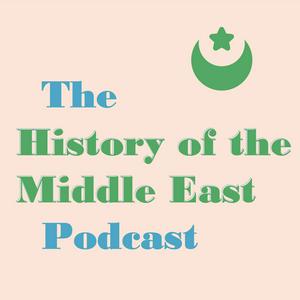
Hol dir die kostenlose radio.at App
- Sender und Podcasts favorisieren
- Streamen via Wifi oder Bluetooth
- Unterstützt Carplay & Android Auto
- viele weitere App Funktionen
Hol dir die kostenlose radio.at App
- Sender und Podcasts favorisieren
- Streamen via Wifi oder Bluetooth
- Unterstützt Carplay & Android Auto
- viele weitere App Funktionen


History of the Middle East
Code scannen,
App laden,
loshören.
App laden,
loshören.



